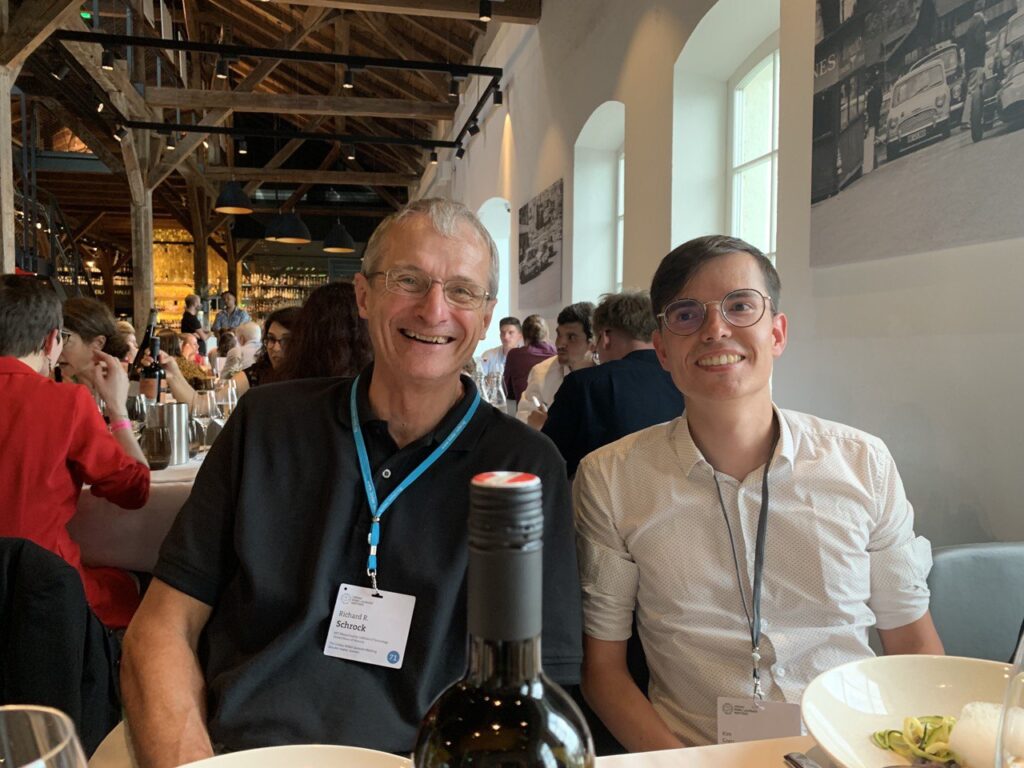BACK TO RESEARCH WITH IMPACT: FNR HIGHLIGHTS
BACK TO RESEARCH WITH IMPACT: FNR HIGHLIGHTS
For each Lindau Nobel Laureate Meeting, the FNR runs a Call for promising young researchers with a connection to Luxembourg to attend. For the 2022 Lindau Meeting, dedicated to chemistry, Kim Greis, PhD candidate at Freie Universität Berlin/Fritz Haber Institute and Fulbright grantee at Yale University had this chance. We speak to Kim about the highlights of this rare experience!

You had the opportunity to network with Nobel Prize winners and hundreds of other young researchers, how was this experience?
“Attending the Lindau Nobel Laureate Meeting was a unique experience that I will never forget. For six days many Nobel Laureates and over six hundred young scientists participated in the meeting with lots of opportunities to exchange ideas.
“Although the meeting is mainly focused on the Nobel Laureates, some of whom I was able to directly interact with, I think that the most exciting part was getting in touch with young scientists from all over the world. They will be the future of the world and be responsible to lead humanity out of the crises we are currently facing. Unfortunately, the meeting was overshadowed by the ongoing pandemic, leading to a decrease in social activities.
“All in all, I really enjoyed the meeting, and I am happy that I could connect with the other participants to develop my professional network.”
What was your impression of the Nobel Prize Winners?
“Most of the participating Nobel Prize Winners clearly showed that they are normal human beings like you and me. They emphasized that they were also young scientists not too long ago, just like most of the participants in the meeting. It was exciting to see their enthusiasm when discussing not only their science but also the research of young scientists.”
What were your highlights?
“My highlight of the scientific program was the open exchanges between the young researchers and the Nobel Laureates. In this format, the young scientists could directly ask questions to a Nobel Laureate, related to their research, their career, or their opinion on general topics. These exchanges were carried out in smaller groups of ca. hundred young scientists and without a moderator, which made these events more personal. Furthermore, the lectures of Benjamin List, Ben Feringa, and David MacMillan were very inspiring.”

What were some discussions around current topics that left an impression on you?
“Current topics were mainly brought up in dedicated panel discussions about trust in science, diversity, green chemistry, or artificial intelligence. I was impressed by Brian P. Schmidt, 2011 Nobel Laureate in Physics and now president of the Australian National University (ANU), who acknowledged that there has been a huge bias towards female researchers not too long ago. Now he actively fights against gender imbalance using his position as president of the ANU. Furthermore, the lingering pandemic was brought up several times, especially since it directly affected the meeting.”
Did you find any inspiration at the meeting, for your work or outside?
“Both the exchanges with the Nobel Laureates and the young scientists were very inspirational. I discussed with Benjamin List a collaborative project that our groups have been working on already before he got the Nobel Prize in 2021. Furthermore, I discussed potential collaborations with other young scientists. The future will show whether some of the shared ideas will lead to a scientific contribution!”
Aside from your PhD project, you are currently on a Fulbright research stay. Can you tell us more about your work?
“I am currently a third-year PhD candidate in Chemistry at Freie Universität Berlin/Fritz Haber Institute. On top of that, I am currently a visiting assistant in research funded by Fulbright at Yale University as part of my PhD program. The main topic of my PhD work is elucidating the structure of the glycosyl cation, the reactive intermediate of sugar synthesis. By knowing the structure of this intermediate, we can get valuable information on the mechanism and thereby tune the parameters to optimize the selectivity of sugar synthesis.
“Ultimately, the gained knowledge will help in producing carbohydrate-based materials and pharmaceuticals in a more efficient and sustainable way. We are currently investigating how we can transpose the knowledge that we gained for reactive intermediates of sugar synthesis to other organic reactions.”

More Lindau Interviews


RELATED